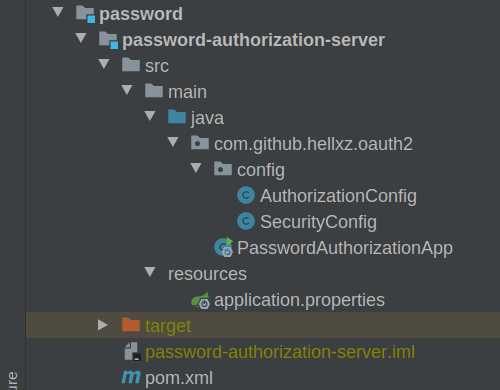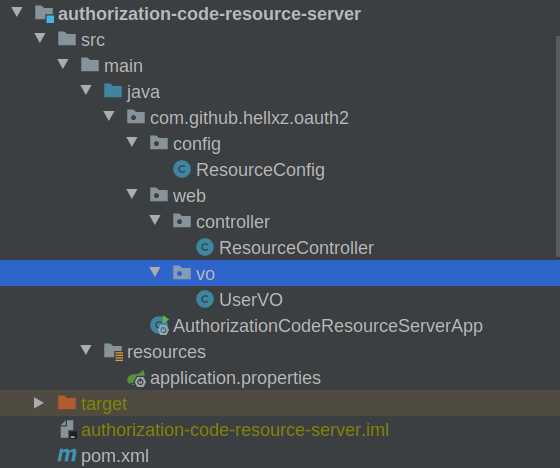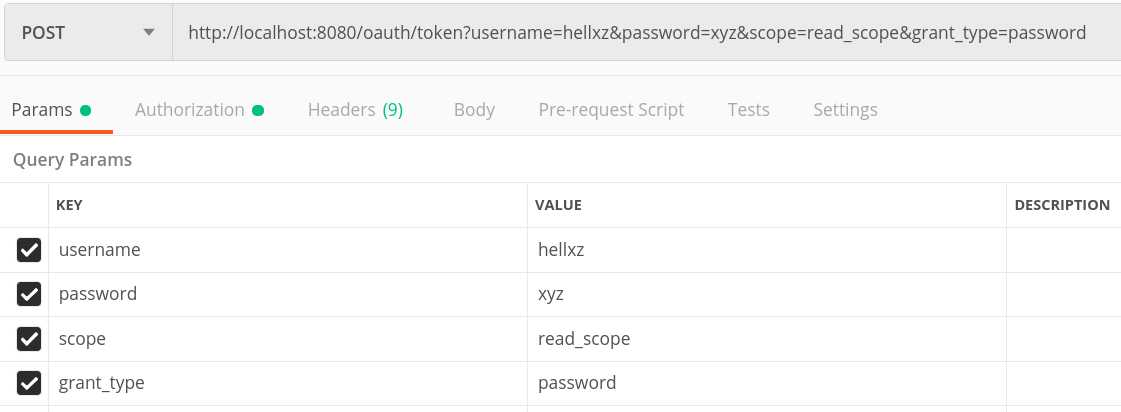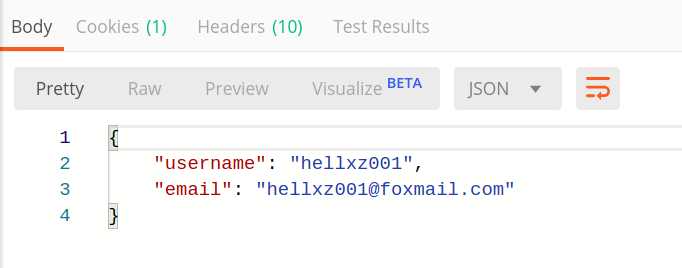标签:points 直接 eve import rop user protected extends err
前几节分享了OAuth2的流程与授权码模式和隐式授权模式两种的Demo,我们了解到授权码模式是OAuth2四种模式流程最复杂模式,复杂程度由大至小:授权码模式 > 隐式授权模式 > 密码模式 > 客户端模式
其中密码模式的流程是:让用户填写表单提交到授权服务器,表单中包含用户的用户名、密码、客户端的id和密钥的加密串,授权服务器先解析并校验客户端信息,然后校验用户信息,完全通过返回access_token,否则默认都是401 http状态码,提示未授权无法访问
编写与说明密码模式的Spring Security Oauth2的demo实现,让未了解过相关知识的读者对此授权流程有个更直观的概念
以下分成授权服务器与资源服务器分别进行解释,只讲关键部分,详情见Github:https://github.com/hellxz/spring-security-oauth2-learn

代码结构与之前两个模式相同,这里便不再进行说明
SecurityConfig配置
package com.github.hellxz.oauth2.config;
import org.springframework.context.annotation.Bean;
import org.springframework.context.annotation.Configuration;
import org.springframework.security.authentication.AuthenticationManager;
import org.springframework.security.authentication.UsernamePasswordAuthenticationToken;
import org.springframework.security.config.annotation.authentication.builders.AuthenticationManagerBuilder;
import org.springframework.security.config.annotation.web.builders.HttpSecurity;
import org.springframework.security.config.annotation.web.configuration.EnableWebSecurity;
import org.springframework.security.config.annotation.web.configuration.WebSecurityConfigurerAdapter;
import org.springframework.security.core.userdetails.UsernameNotFoundException;
import org.springframework.security.crypto.bcrypt.BCryptPasswordEncoder;
import org.springframework.security.crypto.password.PasswordEncoder;
import org.springframework.util.StringUtils;
import java.util.ArrayList;
import java.util.Collections;
@Configuration
@EnableWebSecurity
public class SecurityConfig extends WebSecurityConfigurerAdapter {
@Bean
public PasswordEncoder passwordEncoder() {
return new BCryptPasswordEncoder();
}
@Bean
public AuthenticationManager authenticationManager() throws Exception {
return super.authenticationManager();
}
@Override
protected void configure(AuthenticationManagerBuilder auth) throws Exception {
auth.inMemoryAuthentication()
.withUser("hellxz")
.password(passwordEncoder().encode("xyz"))
.authorities(new ArrayList<>(0));
}
@Override
protected void configure(HttpSecurity http) throws Exception {
//所有请求必须认证
http.authorizeRequests().anyRequest().authenticated();
}
}
基本的SpringSecurity的配置,开启Spring Security的Web安全功能,填了一个用户信息,所有资源必须经过授权才可以访问
AuthorizationConfig授权服务器配置
package com.github.hellxz.oauth2.config;
import org.springframework.beans.factory.annotation.Autowired;
import org.springframework.context.annotation.Configuration;
import org.springframework.security.authentication.AuthenticationManager;
import org.springframework.security.crypto.password.PasswordEncoder;
import org.springframework.security.oauth2.config.annotation.configurers.ClientDetailsServiceConfigurer;
import org.springframework.security.oauth2.config.annotation.web.configuration.AuthorizationServerConfigurerAdapter;
import org.springframework.security.oauth2.config.annotation.web.configuration.EnableAuthorizationServer;
import org.springframework.security.oauth2.config.annotation.web.configurers.AuthorizationServerEndpointsConfigurer;
import org.springframework.security.oauth2.config.annotation.web.configurers.AuthorizationServerSecurityConfigurer;
@Configuration
@EnableAuthorizationServer
public class AuthorizationConfig extends AuthorizationServerConfigurerAdapter {
@Autowired
private AuthenticationManager authenticationManager;//密码模式需要注入认证管理器
@Autowired
public PasswordEncoder passwordEncoder;
//配置客户端
@Override
public void configure(ClientDetailsServiceConfigurer clients) throws Exception {
//@formatter:off
clients.inMemory()
.withClient("client-a")
.secret(passwordEncoder.encode("client-a-secret"))
.authorizedGrantTypes("password") //主要是这里,开始了密码模式
.scopes("read_scope");
//@formatter:on
}
@Override
public void configure(AuthorizationServerEndpointsConfigurer endpoints) throws Exception {
endpoints.authenticationManager(authenticationManager);//密码模式必须添加authenticationManager
}
@Override
public void configure(AuthorizationServerSecurityConfigurer security) throws Exception {
security.allowFormAuthenticationForClients()
.checkTokenAccess("isAuthenticated()");
}
}
这里开启了授权服务器的功能,与上几篇文章中不同的是注入了AuthenticationManager,以及在configure(AuthorizationServerEndpointsConfigurer endpoints)方法中设置了AuthenticationManager
application.properties配置sever.port=8080

这里的关键就是ResourceConfig,配置比较简单与其它几个模式完全一致,模式的不同主要表现在授权服务器与客户端服务器上,资源服务器只做token的校验与给予资源
package com.github.hellxz.oauth2.config;
import org.springframework.context.annotation.Bean;
import org.springframework.context.annotation.Configuration;
import org.springframework.context.annotation.Primary;
import org.springframework.security.config.annotation.web.builders.HttpSecurity;
import org.springframework.security.config.http.SessionCreationPolicy;
import org.springframework.security.crypto.bcrypt.BCryptPasswordEncoder;
import org.springframework.security.crypto.password.PasswordEncoder;
import org.springframework.security.oauth2.config.annotation.web.configuration.EnableResourceServer;
import org.springframework.security.oauth2.config.annotation.web.configuration.ResourceServerConfigurerAdapter;
import org.springframework.security.oauth2.config.annotation.web.configurers.ResourceServerSecurityConfigurer;
import org.springframework.security.oauth2.provider.token.RemoteTokenServices;
@Configuration
@EnableResourceServer
public class ResourceConfig extends ResourceServerConfigurerAdapter {
@Bean
public PasswordEncoder passwordEncoder() {
return new BCryptPasswordEncoder();
}
@Primary
@Bean
public RemoteTokenServices remoteTokenServices() {
final RemoteTokenServices tokenServices = new RemoteTokenServices();
//设置授权服务器check_token端点完整地址
tokenServices.setCheckTokenEndpointUrl("http://localhost:8080/oauth/check_token");
//设置客户端id与secret,注意:client_secret值不能使用passwordEncoder加密!
tokenServices.setClientId("client-a");
tokenServices.setClientSecret("client-a-secret");
return tokenServices;
}
@Override
public void configure(HttpSecurity http) throws Exception {
//设置创建session策略
http.sessionManagement().sessionCreationPolicy(SessionCreationPolicy.IF_REQUIRED);
//@formatter:off
//所有请求必须授权
http.authorizeRequests()
.anyRequest().authenticated();
//@formatter:on
}
@Override
public void configure(ResourceServerSecurityConfigurer resources) {
resources.resourceId("resource1").stateless(true);
}
}
ResourceController主要接收一个用户名,返回一个username与email的json串

application.properties设置server.port=8081
准备工作到这里就差不多了,开始测试
这里客户端使用postman手动发送请求进行演示
访问/oauth/token端点,获取token
http://localhost:8080/oauth/token?username=hellxz&password=xyz&scope=read_scope&grant_type=password
请求头:

请求体:

token返回值
{
"access_token": "4a3c351d-770d-42aa-af39-3f54b50152e9",
"token_type": "bearer",
"expires_in": 43199,
"scope": "read_scope"
}使用token调用资源,访问http://localhost:8081/user/hellxz001,注意使用token添加Bearer请求头
相当于在Headers中添加 Authorization:Bearer 4a3c351d-770d-42aa-af39-3f54b50152e9
资源正确返回

本文仅说明密码模式的精简化配置,某些部分如资源服务再访问授权服务去校验token这部分生产环境可能会换成Jwt、Redis等tokenStore实现,授权服务器中的用户信息与客户端信息生产环境应从数据库中读取,对应Spring Security的UserDetailsService实现类或用户信息的Provider等
最近发现博客写得相对较长,一方面有相当大的重复解释代码的部分,另一方面是代码很多不关键的地方也直接全贴出来了,博客长了代码全了,读者容易失去阅读的兴趣与探索实践的欲望。代码不全会直接贴出源码地址,暂时就这样,把这几篇关于OAuth2授权模式demo的文章赶出来
代码早就写完了,下周可能要开始加班了,先把这些已经完成的部分写出来,后续有什么新的知识点才有时间记
Spring Security OAuth2 Demo —— 密码模式(Password)
标签:points 直接 eve import rop user protected extends err
原文地址:https://www.cnblogs.com/hellxz/p/12041495.html